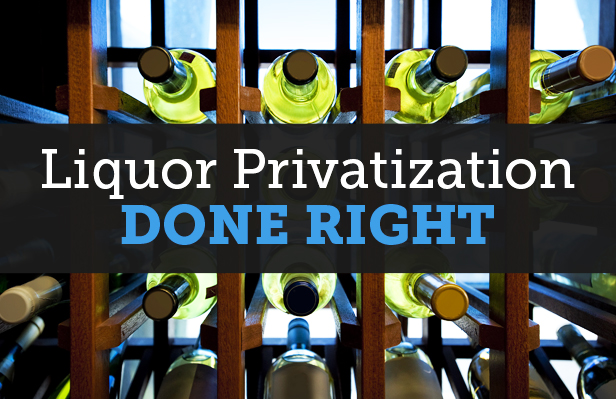Media

Myth: PLCB vs Largest Wholesalers
One popular myth in the liquor debate is that the Pennsylvania Liquor Control Board has enormous “buying power” that benefits Pennsylvanians. The story goes that the state is the largest, or among the largest, buyers of liquor in the country and this allows it to negotiate lower prices with wine and spirits manufacturers (wineries and distilleries), passing on those saving to state stores, bars, restaurants, and hotels.
The problem with the argument? The PLCB isn’t the largest buyer of liquor in nation and it pales in comparison to the “economies of scale” that other wholesale distributors could bring to the commonwealth if the state’s wholesale operations were privatized.
| Ten Largest US Wine and Spirits Wholesalers | ||
| Rank | Wholesale Distributor | 2012 Revenue in Millions |
| 1 | Southern Wine and Spirits | $10,000 |
| 2 | Republic National Distributing | $4,910 |
| 3 | Charmer Sunbelt Group | $4,625 |
| 4 | Glazer’s Family of Companies | $3,000 |
| 5 | Young’s Market Co | $2,345 |
| 6 | Wirtz Beverage Group | $1,755 |
| 7 | Martignetti Companies | $1,150 |
| 8 | Johnsone Brothers Liquor | $945 |
| 9 | Allied Beverage | $730 |
| 10 | Fedway Associates | $660 |
| Source: Impact Newsletter | ||
| PLCB Purchase of Wine and Liquor | $1,145 | |
| Source: PLCB Fiscal Year 11-12 Summary | ||
A ranking of the largest private liquor wholesalers by Shanken’s Impact Newsletter compared with the PLCB’s pre-tax purchase of wine and liquor from manufacturers, shows the PLCB is only the 8th largest wholesaler in the U.S.
Moreover, the PLCB is only about one-ninth the size of the largest U.S. wholesaler, Southern Wine and Spirits.
The supposed advantage of keeping a government monopoly over wholesale—purchasing power and economies of scale—is based solely on misinformation.
More importantly, there are several key benefits to ending the government monopoly over wholesale. As Elizabeth noted recently, wholesale competition is needed to reduce prices and provide greater selection in Pennsylvania. This will ensure restaurants, taverns, and stores get better quality service.
I also point on in my latest commentary that the state wholesale monopoly is what creates the PLCB’s conflict of interest in both marketing and controlling alcohol sales, and enables such boondoggles as branding government wine that competes with Pennsylvania wineries.
As lawmakers dig into the details of how to drag Pennsylvania’s liquor laws into the 21st century, they should realize that a government monopoly over wholesale distribution creates higher prices, less selection, and greater misuse of taxpayer resources.